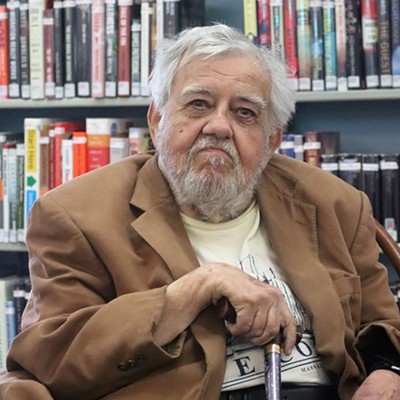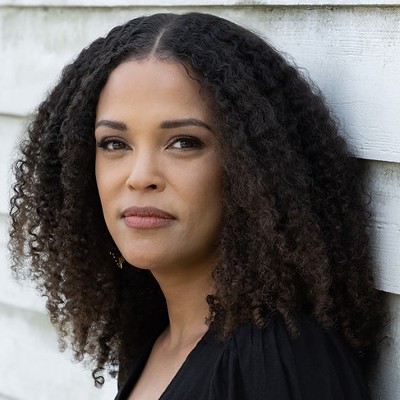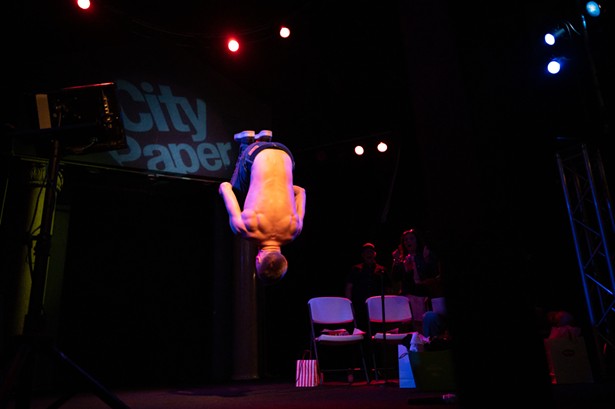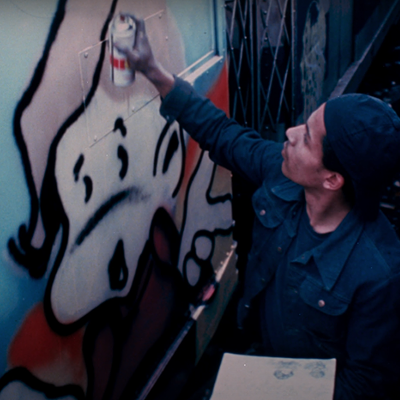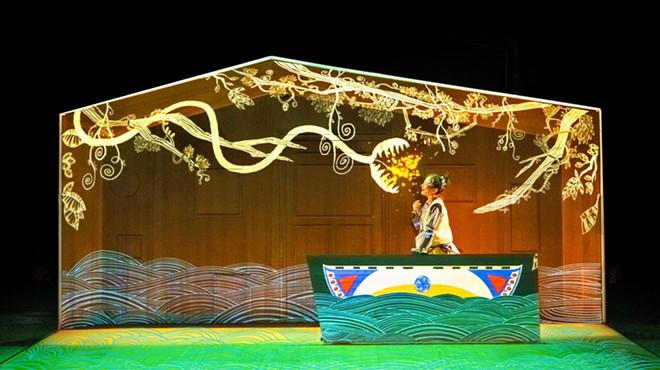Gerald Stern says that the reason Pittsburgh keeps turning up in his poetry might be "sentimental." Not that he doesn't have plenty of other excuses: The Hill District native lived here until after he'd graduated from the University of Pittsburgh, and in his work still draws on wrenching events including the death of his sister when she was 9.
But Stern, who'll give a pair of readings here Oct. 15 and 16, hardly sounds sentimental when he talks about the hometown he left for good nearly 60 years ago, on his way to honors including a National Book Award, a Guggenheim Fellowship and, this year, the Wallace Stevens Award for mastery in the art of poetry.
When he was born, in 1925, to Polish and Ukrainian immigrant parents, the Hill was still heavily Jewish. Stern was a toddler when his family relocated to Beechview -- or when, as he says, "We moved into the gentile suburbs, where I experienced the sweet anti-Semitism of Pittsburgh. They told me I killed Christ. I got the shit beat out of me."
Things were more welcoming in Squirrel Hill, where the Sterns, like many Jewish families, moved in the 1930s. But Stern says he was "half a loner" who spent more time at pool halls than he did studying. And while he had begun writing poetry, that only made him feel more isolated: "I was weird," he recalls realizing. "And I became secretive, subversive."
Any Pittsburgh literary scene was as secret to Stern as his poetry was to everyone else. By the time he split town -- though not before being the guy who drove his Manhattan-bound friend Andy Warhola to the East Liberty station -- he'd had nothing resembling a mentor in his writing. While he says that absence delayed his career by a couple decades -- he didn't publish regularly until he was in his 40s -- it also meant that "Whatever came out was kind of original." He would spend much of the 1950s studying in Paris and New York before moving to teaching, including a stint at Pitt.
Stern retired from his last job, with the Iowa Writers Workshop, in 1995, and for the past eight years has lived in Lambertville, N.J., a stone's throw from both Philadelphia and New York City. He's long been hailed for his visionary yet plain-spoken verse, which is often compared to the work of Walt Whitman. In "Lord Forgive a Spirit," Stern depicts an elderly angel: "I walk out into the garden and there he is, / watering the lilies and studying the digitalis. / He is talking to his own invisible heart; / he is leaking blood."
In what's billed by host Autumn House Press as a "homecoming" fund-raiser, on Sat., Oct. 15, Stern will read at the Hill House; Stern says he'll read largely from his Autumn House-published 2004 book of "aphorisms," Not God After All. He'll be joined by Tennessee-based poet Richard Jackson and local poets Terrance Hayes and Romella D. Kitchens (who'll perform with live music by The Cap Gun Quartet). On Sun., Oct. 16, he'll read at Joseph-Beth Booksellers with Pittsburgh's Jan Beatty, concentrating on his new collection, Everything Is Burning (W.W. Norton), which he calls "kind of angry and focused, reflecting the war and the stupidity going on now."
Stern visits Pittsburgh regularly. But perhaps betraying his own sort of nostalgia, he says liked the city better "when it was filthy and cruel and nervous and conflicted."
"When they cleaned the city up," he adds, "Pittsburgh as a vibrant city really ended."


